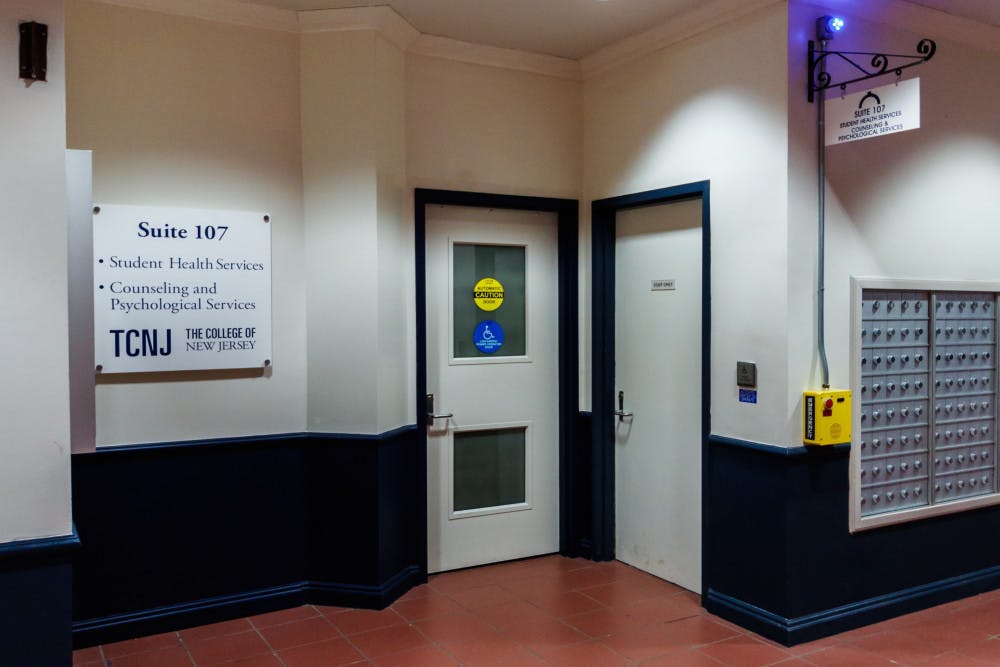By Rachel Smith
Those without female anatomy, financial hardship or a need for hormone treatment may not have noticed the lasting effects of former New Jersey Gov. Chris Christie's 2010 decision to cut funding for family planning.

The impact of this decision, compounded over the last eight years, has resulted in a loss of over $50 million that could have been put toward preventive reproductive health care services, according to Planned Parenthood. This has likely contributed to fewer cancer detections, more unplanned pregnancies and a 35 percent increase in bacterial sexually transmitted infections between 2009 and 2015 statewide, according to Planned Parenthood.
At the College, access to affordable testing and contraceptives is just as vital as anywhere else. Thus, it was a concern when Planned Parenthood, which had originally offered its services to students three days a week, could only offer care once a week.
On Jan. 24, the College launched its own women’s health services after deciding that Planned Parenthood could no longer provide sufficient care. This change allows services to again be offered three-days a week and is run by Ana Slack, a nurse practitioner who is experienced in the field.
“After meeting with the CEO of Planned Parenthood in November, it was apparent that the best choice for our students was to expand our (own) services to include accessible, cost effective and consistent women's health care three days per week,” said Director of Student Health Services Janice Vermeychuk. “Dr. Ana Slack has over 15 years of sexual and reproductive health experience and was able to move easily into the role of women's health clinician.”
Services that continue to be offered include free office visits, annual exams, pap smears, pregnancy options counseling, STI testing and free treatment, according to Vermeychuk. Short-term birth control, including pills, patches, rings and injections, are still offered but long-term options and student hormone maintenance are no longer available.
“(Health Services) is not inserting IUDs or birth control implants at this time because patient demand is very low and the cost to students for the medical procedure and product would be very high,” Vermeychuk said.
IUDs and implants are over 99 percent effective at preventing pregnancy, making them the most effective reversible contraception available. Hormonal IUDs can help women prone to heavy bleeding and anemia and last between three to five years. ParaGard, the copper IUD, can last up to ten years and offers a necessary alternative to those who cannot use any form of hormonal contraception, according to Planned Parenthood.
While students should feel fortunate that reproductive health services are still available, students should have access to care offered three times per week and a wide variety of options — not one or the other.
This is not to say that Health Services is at fault for these shortcomings, the College still offers comparable or superior services to other New Jersey colleges of similar size.
Still, the College should work toward having the variety of services available from Planned Parenthood in the future. In the meantime, the College should look into viable transportation options for students who may desire long-term contraception or hormone treatment.
Despite Health Services’ reports that it has not seen enough demand for IUDs, national trends suggest otherwise. According to The British Medical Journal of Sexual and Reproductive Health, 83 percent of women stated they were happy with their IUD and 87 percent reported that they would recommend it to a friend.
Short-term options may work for many students, but these options could also become less accessible if government-mandated coverage changes. Once inserted, long-term options are guaranteed to last the three, four, five or ten years they advertise.
Unfortunately, our healthcare is too often contested for us to remain silent or to be content with cherry-picked services. As students reflect on the dedication of individuals such as Slack and Vermeychuk, who pushed for a return to services offered three days a week, they must also acknowledge the constant instability of birth control access. At one point, the College had full Planned Parenthood services and three-day-a-week care.
I was fortunate enough to be in the same room as Gov. Murphy when he signed the bill to reinstate funding for family planning in New Jersey. As Murphy himself stated, “We cannot immediately undo the damage of eight years of vetoed women’s healthcare funding under Gov. Christie, but we can put the era of putting personal politics before the needs of countless thousands of New Jerseyans behind us.”
The College is not the exception, but the precaution to this sentiment. If we do not pay attention, be vocal and bear witness, our rights to healthcare could continue to be taken from us.
Students share opinions around campus









